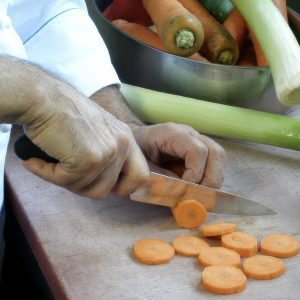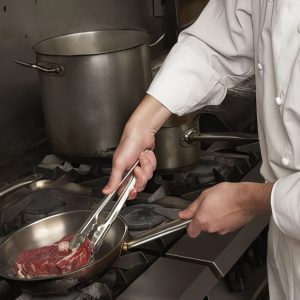Mistake #5: Not Understanding the Differences in Degrees
Whether you put in nine months or four years, you should have something to show at the end of your culinary education besides stellar knife skills and a knowledge of food.
Although a degree or certification won’t guarantee you a job or a great future, it can go a long way in helping you land the job of your dreams or being qualified for promotions as you grow and develop in your career.
Perhaps more important, however, is knowing the differences between degrees and what they mean for your future. Otherwise, you might spend too much time and money on something that means little more than a pat on the back.
Different Schools = Different Degrees
In many cases, private culinary institutions don’t offer traditional Associate or Bachelor’s degrees – the kind of degrees recognized nationwide and by all types of institutes of higher education. Instead, they offer “certifications,” “diplomas,” and other esoteric labels affiliated only with that school.
The programs last anywhere from nine months to several years, and depending on the quality and reputation of the school, these labels can mean a lot or very little within the food industry.
Community colleges, some private culinary institutions, private universities, and public universities almost always offer degree-based programs.
A two-year investment at a community college typically results in an Associate degree, while four or more at a university will get you a Bachelor’s degree. More intensive training at the university level can also result in a Master’s degree (usually at around six years total).
Benefits of a Certification or Diploma Program
When you attend a school that offers a certification or diploma program, you will typically focus on culinary skills and only culinary skills. Degree-based programs usually come with several years of general education credits, meaning you will be learning math, English, communication, and science in addition to your culinary specialty of choice.
When you choose a diploma program, your education is almost always more focused and shorter in duration.
Certification and diploma programs also come with some pretty big names. For example, Le Cordon Bleu is a certification program, and it is recognized worldwide as a leader in culinary training. Even though you don’t get the degree that comes with a more traditional education, you do get the recognition and fame of having graduated from a top-notch facility.
Benefits of a Degree Program
Degree programs are more standard as a form of educational training. In most cases, schools offering degrees are recognized by the U.S. Department of Education as a higher education facility, and they carry regional accreditation, which means you can transfer your credits to another school if you don’t complete the course.
They also have the added benefit of being recognized by the non-culinary community, so if you decide to change careers and enter the business world (or even go back to school), your degree will carry some weight with your employers – particularly since you took those general education classes for a more well-rounded education overall.
In most cases, degree programs are also less expensive than the private training you get through certification schools – especially when set against the length of the program. Four years at a public university might cost the same as a single year at one of the higher-end private institutions.
Which Degree to Choose
Only you can decide for sure which path is best for you. No matter which degree or diploma program you choose, it’s best to be prepared for the time and/or money you’ve decided to put into your education. Changing schools in the middle of your program is one of the worst ways to lose out on your education investment.
Is A Culinary Career Right For Me?












